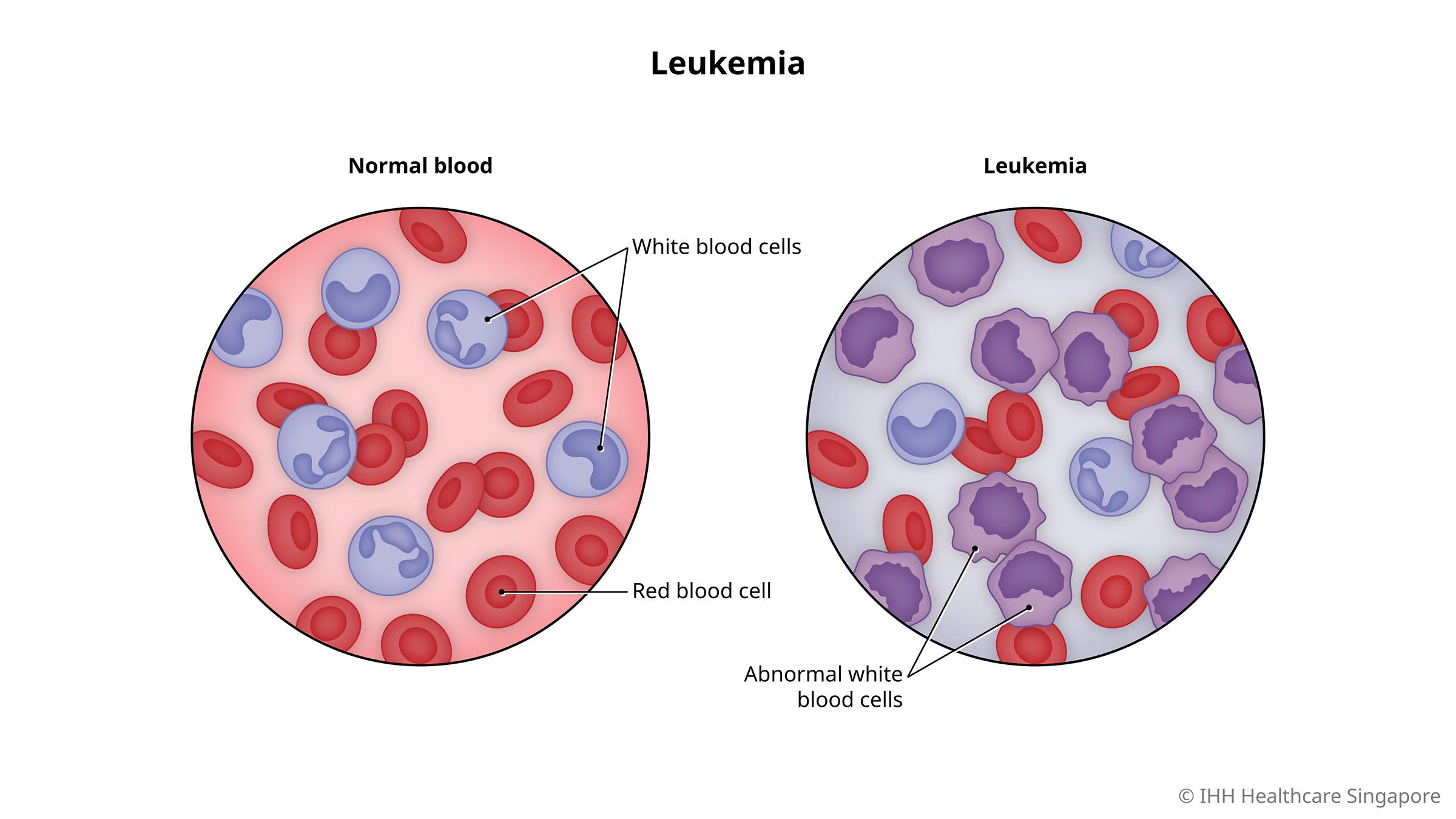-
-
Featured Care Areas

Leukemia (Blood Cancer)
What is leukemia?
Leukemia, also spelled as leukaemia, is a type of blood cancer that occurs when there is a rapid growth of abnormal white blood cells in the bone marrow.
This condition involves white blood cells, which are an important part of the immune system that fight infections. Leukemia happens when abnormalities cause the bone marrow to make immature white blood cells (leukemic cells) that outnumber and crowd out the healthy cells.
Leukemia can be either acute (worsens quickly) or chronic (worsens slowly).
Types of leukemia
There are different types of leukemia. The type determines whether it starts in myeloid cells or in lymphoid cells.
- Acute myeloid leukemia – This is common in both children and adults, and is the most common type of acute leukemia in adults. This type of leukemia develops from cells that would turn into white blood cells other than lymphocytes.
- Acute lymphocytic leukemia – Most common in young children, this type of leukemia develops from early forms of lymphocytes, a type of white blood cell.
- Chronic myeloid leukemia – It mainly affects adults and may display few or no symptoms for months or even years. Chronic leukemia is generally harder to cure than acute leukemia.
- Chronic lymphocytic leukemia – This is a common type of chronic leukemia in adults. It may display few or no symptoms for months or even years.
- Hairy cell leukemias and large granular lymphocyte – These are rarer types of leukemias.
What are the symptoms of leukemia?
The early signs and symptoms of leukemia may vary, depending on the type of leukemia a person has. They may also be difficult to spot as they resemble other conditions.
Common symptoms of leukemia include:
- Bleeding or bruising easily, or tiny red spots on the skin
- Bone pain or tenderness
- Fever or chills
- Frequent infections
- Loss of appetite or weight loss
- Ongoing tiredness or weakness
- Shortness of breath or excessive sweating, especially at night
- Swollen lymph nodes (glands), large liver or spleen
What are the causes of leukemia?
Leukemia is generally thought to be caused by mutations (changes) in the DNA of the blood cells, resulting in them not functioning normally.
The exact causes of leukemia are not known, although there may be some risk factors.
What are the risk factors for leukemia?
These include:
- Family history of leukemia
- Genetic disorders, such as Down’s syndrome
- Exposure to radiation, or chemicals such as benzene
- Having an impaired immune system (or people who take drugs that suppress the immune system)
- Developing certain infections, including the Epstein-Barr virus and Helicobacter pylori infection
Leukemia can also develop in those who have received certain types of chemotherapy for previous cancer treatment.
How do you prevent leukemia?
While there is no sure way to prevent leukemia, you can reduce your risk by:
- Quitting smoking
- Maintaining a healthy body weight
- Eating a balanced diet that includes whole grains, fruits, vegetables and foods rich in protein
- Avoiding chemical substances like benzene, and high doses of radiation
This page has been reviewed by our medical content reviewers.
Need help?
For enquiries, please call
+65 6377 3737
For appointment bookings, please WhatsApp
+65 8111 3777









